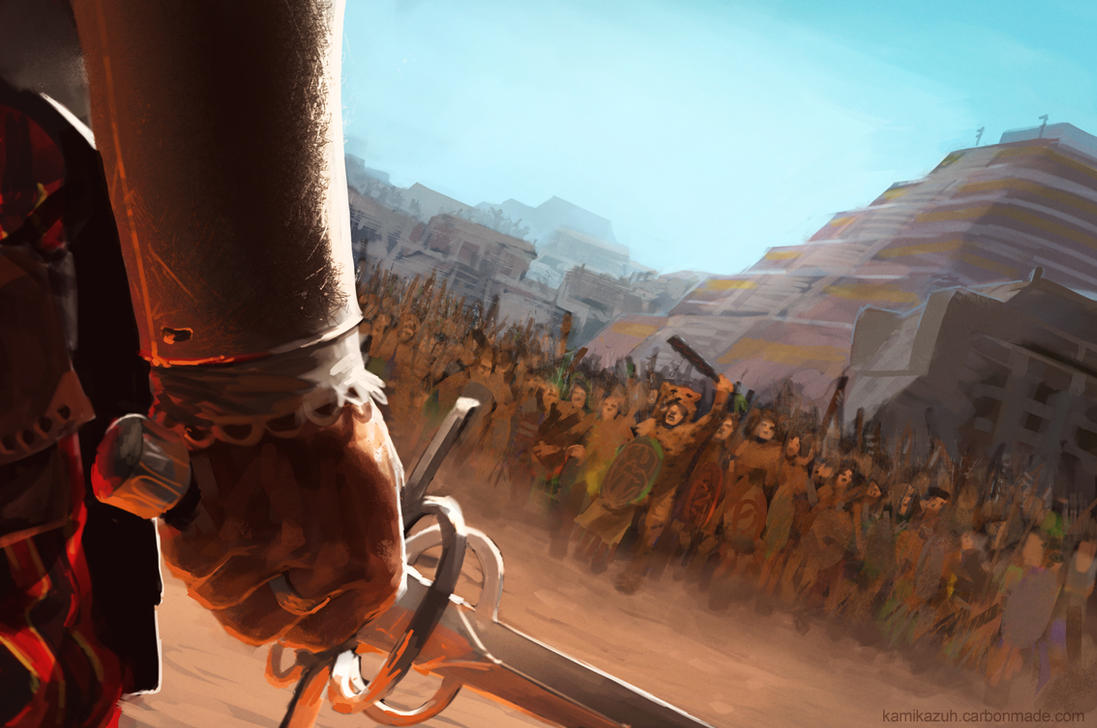The bell for third period had already sounded. It amazed Zammie how quickly the hallways switched from mass hysteria to empty solitude between classes. One moment the locker-lined halls were filled with a couple hundred middle-schoolers, the next they’re as empty as a canteen in the desert.
Usually Zammie would have already been in class himself at this point, but he just arrived at school from a rough teeth cleaning at the dentist. He turned one of the vacant corners and saw four peers standing near the lockers on the other side of the white-tiled hallway.
A small boy had his back against the blue lockers while three larger boys hovered over him like a trio of night club bouncers. Two of the boys were holding the smaller boy by the arms while the third brute was talking to him with his finger in his face. Zammie recognized the smaller boy. His name was Joseph Suna. His dad was Japanese and his mom was Thai, Asian immigrants like his own parents. Joseph was the quintessential outcast at school. Too smart for his own good. Too small for his age. A dark bowl cut encircled his head, and his brown pants stopped short at his ankles. The kid had no chance. The big red-haired boy’s name was Marvin. Zammie didn’t know him personally, but he heard enough urban legends to stay clear of Marvin at all cost.
A small boy had his back against the blue lockers while three larger boys hovered over him like a trio of night club bouncers. Two of the boys were holding the smaller boy by the arms while the third brute was talking to him with his finger in his face. Zammie recognized the smaller boy. His name was Joseph Suna. His dad was Japanese and his mom was Thai, Asian immigrants like his own parents. Joseph was the quintessential outcast at school. Too smart for his own good. Too small for his age. A dark bowl cut encircled his head, and his brown pants stopped short at his ankles. The kid had no chance. The big red-haired boy’s name was Marvin. Zammie didn’t know him personally, but he heard enough urban legends to stay clear of Marvin at all cost.
“I asked you nicely, Joseph,” said Marvin. “Didn’t I ask you nicely?”
Joseph couldn’t speak. His chin quivered like a ribbon tied to a fan.
“I told you if you talked to her again you’d be punished, you little bitch.”
Without a moment’s hesitation Big Marvin punched Little Joseph right in the stomach. A whimper escaped from Joseph’s mouth and he doubled over, his knees buckled and the other two boys let go of him so he could fall to the floor.
Zammie froze in the hallway. One of the boys spotted him and pointed.
“Look!”
The red-haired boy looked at Zammie and in a flash started walking towards him. Zammie’s heart began racing but he kept his feet planted. He didn’t want to show fear, but his bladder felt like it was about burst open like a tomato in a microwave.
“What’re you lookin’ at?” growled Marvin, approaching Zammie like a slobbering pitbull.
Zammie tried to speak, but his jaws wouldn’t cooperate.
“You didn’t see nothin’, did ya?” said Marvin, now right on top of Zammie, freckles and all.
Zammie didn’t respond. But he did see something. Something that made him both sick to his stomach and angry at the same time.
Marvin stepped closer. “Say ‘no,’ you little bitch.”
“No,” said Zammie, frightened and fuming.
“Say ‘no I didn’t see nothing’.”
“I … didn’t see anything.” Sudden shame washed over him.
“Smart ass.” Marvin stepped closer to Zammie, looking down at him, his baloney breath filtering out in hot waves. Small acne pustules convalesced around the corners of his mouth like tiny soap bubbles. “You’re name’s Zammie, right?”
Zammie nodded his head, almost proud that Marvin would know who he was.
“If you tell anyone, Zammie, then we’ll find you. Believe it. And you won’t like what we’ll do to you.”
Zammie glanced at Marvin’s two stooges. They were bad news: greasy hair, see-through mustaches, dull eyes. Kids that didn’t amount to much after graduation. If they even graduated.
Zammie had always told himself if he was ever bullied or pushed around he would stand up for himself. If he ever saw someone else being bullied or pushed around he would stand up for them. Well, here he was. And he couldn’t move a muscle. Putting up as much fight the last mushy fruit loop in a bowl of cold cereal.
Marvin turned away from Zammie, motioned to his two minions, and the three of them walked quickly down the hall and turned a corner, probably off to find someone else to harass. Zammie exhaled and rushed over to where Joseph was trying to stand up again.
“Are you okay? Why did they do that?”
Joseph tried taking a couple deep breaths. He was in the 7th grade like Zammie, but he was only ten years old whereas most of the other 7th graders were twelve or just turning thirteen. He had been pushed ahead two classes in elementary school by his parents. They believed their gifted child needed the additional challenge of more advanced academics. What they hadn’t taken into consideration was the increased interactions with kids much larger and much less passive than him.
“I’m fine,” he said. Zammie noticed large tears falling from his eyes.
“What’d you do to piss off Marvin?” asked Zammie.
“Nothing … I’ve gotta go to class.”
Joseph picked up his backpack from the other side of the hallway and ran off as quick as his little feet would carry him. One of his laces was undone. Zammie was left alone both confused with what had just happened and disappointed in his response to it.
On sale now at Amazon.com!

